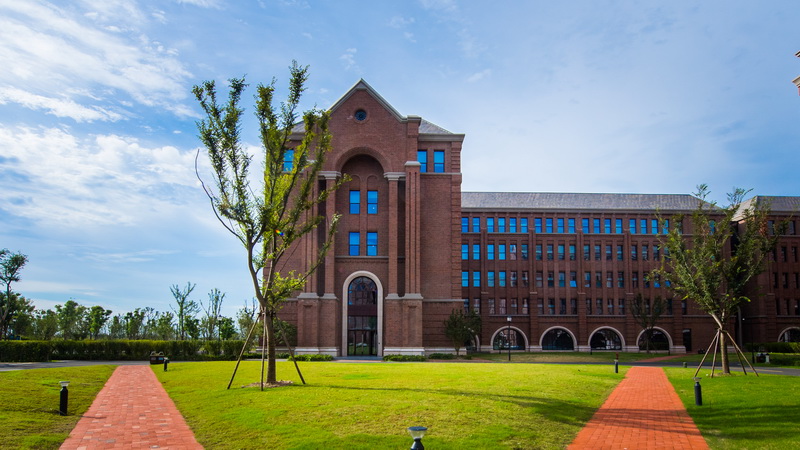Introduction to Philosophy
PHIL 101

Course Code
PHIL 101
Course Name
Introduction to Philosophy
Credit
3.0 - 3.0
Instructors
Parent ID
Semester (field_semester)
- Any -2016/2017 Fall Winter2016/2017 Spring Summer2017/2018 Fall Winter2017/2018 Spring Summer2018/2019 Fall Winter2018/2019 Spring Summer2019/2020 Fall Winter2019/2020 Spring Summer2020/2021 Fall Winter2020/2021 Spring Summer2021/2022 Fall Winter2021/2022 Spring Summer2022/2023 Fall Winter2022/2023 Spring Summer2023/2024 Fall Winter2023/2024 Spring Summer2024/2025 Fall Winter2024/2025 Spring Summer
Apply
2021/2022 Fall Winter
El-Hashash,Ahmed Hesham Khalefa, 洪智
2020/2021 Fall Winter
曾劭恺
2019/2020 Fall Winter
曾劭恺
2018/2019 Fall Winter
曾劭恺
Introduction
<p>Consideration of some main problems of philosophy concerning, for example, knowledge, God, mind and body, and human freedom. Credit is not given for both PHIL 101 and PHIL 100. Students registering in Lecture AL1 must also register in a lecture-discussion section (AD_). This course satisfies the General Education Criteria for: Humanities – Hist & Phil</p>
Introduction to Psychology
PSYC 100

Course Code
PSYC 100
Course Name
Introduction to Psychology
Credit
3.0 - 3.0
Instructors
Parent ID
Semester (field_semester)
- Any -2016/2017 Fall Winter2016/2017 Spring Summer2017/2018 Fall Winter2017/2018 Spring Summer2018/2019 Fall Winter2018/2019 Spring Summer2019/2020 Fall Winter2019/2020 Spring Summer2020/2021 Fall Winter2020/2021 Spring Summer2021/2022 Fall Winter2021/2022 Spring Summer2022/2023 Fall Winter2022/2023 Spring Summer2023/2024 Fall Winter2023/2024 Spring Summer2024/2025 Fall Winter2024/2025 Spring Summer
Apply
2020/2021 Fall Winter
钟建安
2019/2020 Fall Winter
钟建安
Introduction
<p>Study of human behavior with special reference to perception, learning, memory, thinking, emotional life, and individual differences in intelligence, aptitude, and personality; emphasis on the scientific nature of psychological investigations; and discussion of research methods and the relation of their results to daily life and everyday problems. Lectures, discussions, and six hours of participation as a subject in psychological experiments. Credit is not given for both PSYC 100 and either PSYC 103 or PSYC 105.
Introduction to Sociology
SOC 100

Course Code
SOC 100
Course Name
Introduction to Sociology
Credit
3.0 - 3.0
Instructors
Parent ID
Semester (field_semester)
- Any -2016/2017 Fall Winter2016/2017 Spring Summer2017/2018 Fall Winter2017/2018 Spring Summer2018/2019 Fall Winter2018/2019 Spring Summer2019/2020 Fall Winter2019/2020 Spring Summer2020/2021 Fall Winter2020/2021 Spring Summer2021/2022 Fall Winter2021/2022 Spring Summer2022/2023 Fall Winter2022/2023 Spring Summer2023/2024 Fall Winter2023/2024 Spring Summer2024/2025 Fall Winter2024/2025 Spring Summer
Apply
2021/2022 Fall Winter
Jaap Nieuwenhuis
2019/2020 Spring Summer
Nieuwenhuis, Jacob Gerard
Introduction
<p>Sociology offers a unique lens through which we can examine the world around us. In this course you will develop a perspective that will allow you to analyze the social world in a way that reveals the hidden and/or overlooked social forces that shape our lives. This approach, the sociological imagination, will enable you to explore how social forces influence the ways we view and navigate our social world.
Introduction to the Principle
PHIL2002

Course Code
PHIL2002
Course Name
Introduction to the Principle
Credit
3.0 - 3.0
Instructors
Parent ID
Semester (field_semester)
- Any -2016/2017 Fall Winter2016/2017 Spring Summer2017/2018 Fall Winter2017/2018 Spring Summer2018/2019 Fall Winter2018/2019 Spring Summer2019/2020 Fall Winter2019/2020 Spring Summer2020/2021 Fall Winter2020/2021 Spring Summer2021/2022 Fall Winter2021/2022 Spring Summer2022/2023 Fall Winter2022/2023 Spring Summer2023/2024 Fall Winter2023/2024 Spring Summer2024/2025 Fall Winter2024/2025 Spring Summer
Apply
2022/2023 Spring Summer
方瑞
2021/2022 Fall Winter
无
Introduction
<p>By putting across Marxism’s world outlook and methodology, this course is to help students get a notion of the basic principles of Marxism as a whole and get to know the fundamental rules of the development of human society, so as to help them establish correct outlooks for the world, life and value, and become a qualified builder as well as successor of our socialism cause.</p>
Introduction to the Principle of Marxism
PHIL2001

Course Code
PHIL2001
Course Name
Introduction to the Principle of Marxism
Credit
3.0 - 3.0
Instructors
Parent ID
Semester (field_semester)
- Any -2016/2017 Fall Winter2016/2017 Spring Summer2017/2018 Fall Winter2017/2018 Spring Summer2018/2019 Fall Winter2018/2019 Spring Summer2019/2020 Fall Winter2019/2020 Spring Summer2020/2021 Fall Winter2020/2021 Spring Summer2021/2022 Fall Winter2021/2022 Spring Summer2022/2023 Fall Winter2022/2023 Spring Summer2023/2024 Fall Winter2023/2024 Spring Summer2024/2025 Fall Winter2024/2025 Spring Summer
Apply
2022/2023 Fall Winter
方瑞
2022/2023 Spring Summer
方瑞
2021/2022 Spring Summer
方瑞
2021/2022 Fall Winter
Roesler,Jeffery
2019/2020 Spring Summer
付文军
Introduction
<p>By putting across Marxism’s world outlook and methodology, this course is to help students get a notion of the basic principles of Marxism as a whole and get to know the fundamental rules of the development of human society, so as to help them establish correct outlooks for the world, life and value, and become a qualified builder as well as successor of our socialism cause.</p>
Literature and Ideas
CWL 202

Course Code
CWL 202
Course Name
Literature and Ideas
Credit
3.0 - 3.0
Instructors
Parent ID
Semester (field_semester)
- Any -2016/2017 Fall Winter2016/2017 Spring Summer2017/2018 Fall Winter2017/2018 Spring Summer2018/2019 Fall Winter2018/2019 Spring Summer2019/2020 Fall Winter2019/2020 Spring Summer2020/2021 Fall Winter2020/2021 Spring Summer2021/2022 Fall Winter2021/2022 Spring Summer2022/2023 Fall Winter2022/2023 Spring Summer2023/2024 Fall Winter2023/2024 Spring Summer2024/2025 Fall Winter2024/2025 Spring Summer
Apply
2019/2020 Fall Winter
姜文涛
Introduction
<p>Analysis of several important world-views in Western civilization (such as classical, Romantic, modern, and so forth), studied comparatively and in relation to selected figures in Western literature. Prerequisite: CWL 241 and CWL 242; or one year of college literature; or consent of instructor. This course satisfies the General Education Criteria for: Cultural Studies - Western Humanities – Lit & Arts</p>
Mental Education and Foundation of Law
LAW1001

Course Code
LAW1001
Course Name
Mental Education and Foundation of Law
Credit
3.0 - 3.0
Instructors
Parent ID
Semester (field_semester)
- Any -2016/2017 Fall Winter2016/2017 Spring Summer2017/2018 Fall Winter2017/2018 Spring Summer2018/2019 Fall Winter2018/2019 Spring Summer2019/2020 Fall Winter2019/2020 Spring Summer2020/2021 Fall Winter2020/2021 Spring Summer2021/2022 Fall Winter2021/2022 Spring Summer2022/2023 Fall Winter2022/2023 Spring Summer2023/2024 Fall Winter2023/2024 Spring Summer2024/2025 Fall Winter2024/2025 Spring Summer
Apply
2022/2023 Spring Summer
姚明明
2021/2022 Spring Summer
代玉启
2021/2022 Fall Winter
崔佳欢, 阎妍
2019/2020 Spring Summer
姚明明
2018/2019 Spring Summer
姚明明
Introduction
<p>This course is an ideological and political theory course that every college student should take, aiming at improving the ideological, moral, psychological and legal quality of college students.This course for college students' social adaptation, growth and development of body and mind, and is widely concern as the breakthrough point, mainly carries on the thought to serve the people as the core, collectivism as the principle of the socialist outlook on life, values, ethics, legal education, guide and help students establish a good ideal, sentiment, moral character and legal l
Modern Chinese History
HIST2001

Course Code
HIST2001
Course Name
Modern Chinese History
Credit
3.0 - 3.0
Instructors
Parent ID
Semester (field_semester)
- Any -2016/2017 Fall Winter2016/2017 Spring Summer2017/2018 Fall Winter2017/2018 Spring Summer2018/2019 Fall Winter2018/2019 Spring Summer2019/2020 Fall Winter2019/2020 Spring Summer2020/2021 Fall Winter2020/2021 Spring Summer2021/2022 Fall Winter2021/2022 Spring Summer2022/2023 Fall Winter2022/2023 Spring Summer2023/2024 Fall Winter2023/2024 Spring Summer2024/2025 Fall Winter2024/2025 Spring Summer
Apply
2022/2023 Fall Winter
赵晖
2022/2023 Spring Summer
赵晖
2021/2022 Spring Summer
赵晖
2021/2022 Fall Winter
赵瑜佩
2020/2021 Fall Winter
赵晖
Introduction
<p>The course mainly teaches the history that the Chinese people resist the foreign invaders, fights for the racial independence, overthow the reactionary governance and carry out the liberation of people, helps the students to understand the history of the nation, the state of the nation ,appreciate deeply how history and people choose Maxist, choose Communist Party of China ,choose socialist road.
Modern Chinese Literature
UNWL 316

Course Code
UNWL 316
Course Name
Modern Chinese Literature
Credit
3.0 - 3.0
Instructors
Parent ID
Semester (field_semester)
- Any -2016/2017 Fall Winter2016/2017 Spring Summer2017/2018 Fall Winter2017/2018 Spring Summer2018/2019 Fall Winter2018/2019 Spring Summer2019/2020 Fall Winter2019/2020 Spring Summer2020/2021 Fall Winter2020/2021 Spring Summer2021/2022 Fall Winter2021/2022 Spring Summer2022/2023 Fall Winter2022/2023 Spring Summer2023/2024 Fall Winter2023/2024 Spring Summer2024/2025 Fall Winter2024/2025 Spring Summer
Apply
2022/2023 Spring Summer
张广海
2019/2020 Spring Summer
Zhang Guanghai
Introduction
<p>Modern Chinese Literature</p>
Philosophy of Science
PHIL 270

Course Code
PHIL 270
Course Name
Philosophy of Science
Credit
3.0 - 3.0
Instructors
Parent ID
Semester (field_semester)
- Any -2016/2017 Fall Winter2016/2017 Spring Summer2017/2018 Fall Winter2017/2018 Spring Summer2018/2019 Fall Winter2018/2019 Spring Summer2019/2020 Fall Winter2019/2020 Spring Summer2020/2021 Fall Winter2020/2021 Spring Summer2021/2022 Fall Winter2021/2022 Spring Summer2022/2023 Fall Winter2022/2023 Spring Summer2023/2024 Fall Winter2023/2024 Spring Summer2024/2025 Fall Winter2024/2025 Spring Summer
Apply
2021/2022 Fall Winter
无
Introduction
Investigation of the nature of scientific knowledge by examining archetypal examples from physical science (e.g., Ptolemaic and Copernican astronomy); nature of scientific truth, validation of theories, nature of scientific theories, evolution of theories, experimental procedure, role of presuppositions, scientific revolutions, etc.
This course satisfies the General Education Criteria in Spring 2020 for:
Humanities – Hist & Phil
Pagination
- First page
- Previous page
- 1
- 2
- 3
- 4
- Next page
- Last page
- Jump to Go





